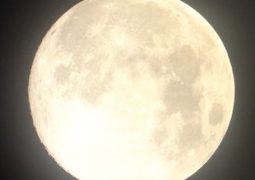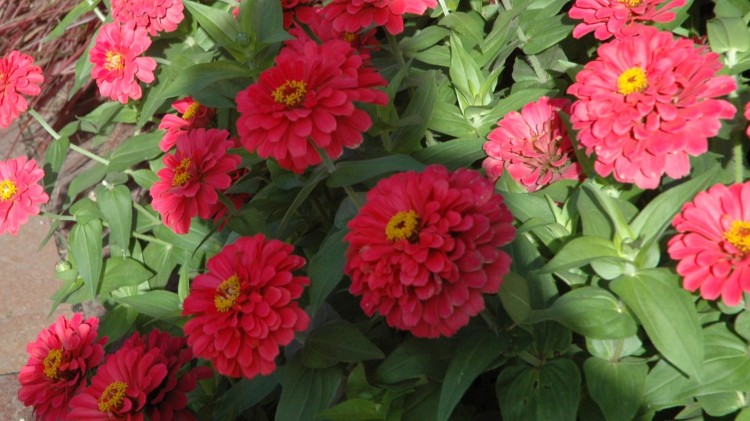There is a profound, almost mystical, relationship between an author and his characters, a Creator and his/her Creations. I don’t know if this is a common experience among authors, but in creating the characters in the writing exercises I’ve done, my characters sometimes teach me something about being a human being that I didn’t realize. They fill in the lacunae of my own human experience, and surprise me with their responses.
Some years ago I wrote a dialogue between a patient and his psychiatrist. The patient described a long series of traumas, and I, as the author, was very involved in setting down his history as poignantly as possible. When the patient-character had finished, I was very surprised that the psychiatrist responded, ‘My dear fellow, that’s simply awful! Where does that leave you now?’ It had not occurred to me to ask that question. It’s very true that sometimes we become so involved in our past that we don’t recognize what it means for our present.
More recently, one chapter in my ebook ‘Behind These Red Doors: Stories a Cathedral Could Tell’ involved the confession of a young woman who had had a miscarriage. She had not wanted another child (she’d already had two) and felt that she had somehow killed the unborn child with her resentment. In the course of that confession, her confessor talked about her husband and his reaction to the miscarriage. In my experience as a counsellor, I’ve touched on this situation once or twice, but it never occurred to me that the husband might feel guilty because he believed his wife had lost the baby due to his own (physical) inadequacies. It took my character to teach me that (and it is not an uncommon reaction in men in this situation).
In the same eBook, I wrote of a WWI veteran who had become an alcoholic. One stormy afternoon he stumbled into the Cathedral and had an intensely inebriated conversation with the Virgin Mary. He was so drunk that he vomited on the Cathedral floor, and felt deeply ashamed. He cleaned up the sick, feeling humiliated, and at the same time, ennobled because he was taking responsibility for a situation he’d created, something he had not done in a long time. I would never have imagined such a counterbalance of emotions—my character taught me that.
In the book I’m writing currently, my protagonist walks away from an unwelcomed sexual advance by a voluptuous and uninhibited young woman. He does this because he recognises that the pleasures of the moment are not worth the complications and difficulties that will almost certainly follow. At the same time, he feels emasculated because a ‘real man’ would take advantage of the circumstances, and damned be the consequences! I had no idea, but it makes sense to me.
Perhaps I’m the character, and they are my creators? (Think of Chuang Tzu: Once upon a time, I, Chuang Tzu, dreamt I was a butterfly, fluttering hither and thither, to all intents and purposes a butterfly. I was conscious only of my happiness as a butterfly, unaware that I was Tzu. Soon I awakened, and there I was, veritably myself again. Now I do not know whether I was then a man dreaming I was a butterfly, or whether I am now a butterfly, dreaming I am a man.) You may understand my confusion.
A vital requisite of creativity is that you must shed your inhibitions in order for creativity to truly flow. That’s much more easily said than done. Inhibitions are present for a reason—they protect us and keep us from doing things that threaten that which we most highly value within ourselves. They keep us from doing stupid things which usually entail us exposing ourselves to potential injuries and destruction (not always of the body, but also of the heart, and most certainly of the mind.)
If creativity is courage, it requires the shedding of those inhibitions—those barriers that are meant to protect the most sensitive and vulnerable parts of us. If we can do that, if we can lose ourselves in our creation, our creation will have Life.
Courage is hard come by. Smart people run out of a burning building; the fireman runs into the burning building, not because he is foolish, but because he values something more than himself. The enthusiasm, the purpose, the momentum of the instant is what carries him, and can carry us, to something new.
Creativity can be dangerous because it carries us beyond ourselves and our protections, causing us, in the rapture of the moment, to leave behind that to which we have clung out of self-preservation. When we cannot embrace that courage (and there is no criticism of the person who, in effect, does not wish to run into a burning building), the momentum of the moment can take us forward.
What is it we want to do? Paint a picture, or paint a really beautiful picture? Shall we write a story, or write a story that touches the hearts of others, however much it may intimidate us? As creative people we have a responsibility to our audiences. Many people live in the mundane. There is little beauty, little feeling, little exhilaration. They don’t always want excitement or stimulation, but they want something more than they had. Our responsibility is to remind others that there is more than what they perceive as ‘Life’. There is beauty, but it doesn’t always present itself in the ways we’ve come to accept. There is excitement, and sometimes it leads us to consider life as something other than we’ve lived it, because our experiences, in the broad spectrum of things, are very narrow. There is more than THIS.
I do not know these things by myself. My characters taught me.



